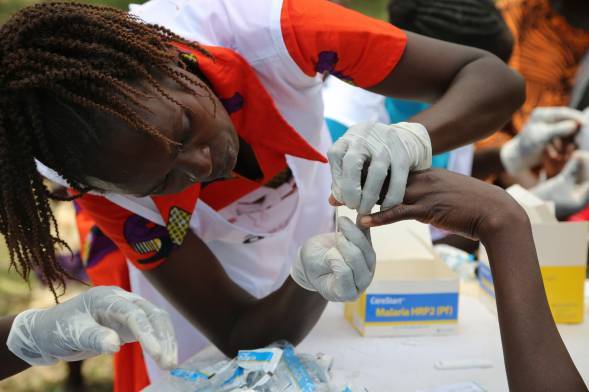You have probably suffered high out of pockets costs as you sought care from a health facility, admission at a hospital or even by directly fundraising for friends and relatives. It shouldn’t be this way as everyone everywhere should access the health services they need of sufficient quality to give expected outcomes when and where they need, without suffering financial hardship. This is Universal Health Coverage.
A major barrier to universal health coverage is an overreliance on direct payments at the time people need care.
The number of patients that pay their health services Out of Pocket (OOP) in Kenya is very high and estimated at one third of the total health expenditure and reflected in the hundreds of patients inhumanly detained in hospitals over unpaid bills. It’s also a major cause of poverty with over 1 million people impoverished annually from health bills.
The Ministry of Health estimates that 16% of the sick do not seek medical care due to financial constrains while 38% of them must sell their assets or borrow in order to finance their medical bills.
The OOP health spend is a big barrier for Kenyans accessing healthcare services as it drives the poorer households easily into poverty. Because of ‘Out of pocket expenditure’ on health services, it is estimated that at least 1 million Kenyans are pushed into poverty every year.
The Kenya Government has prioritized attainment of Universal Health Coverage (UHC) as the means for reducing the expenditure burden that a majority of Kenyans incur while seeking healthcare and the National Hospital (sic) Insurance Fund (NHIF) has been identified as the risk pooling vehicle that will enable equitable access to basic health services.
In order to realize this objective, there are plans to review and amend the NHIF Act to align it to the universal health coverage agenda. First and foremost to change it from a hospital fund to a health fund alongside other amendments that allow for different sources of pool funds.
Currently, the NHIF pool is estimated to have about 16m beneficiaries largely from the formal sector and in the government’s plans, a further 12 million beneficiaries from the informal sector will need to be recruited to membership of NHIF through own premium contributions. The government has committed to pay for a further 1.5 million poor families through health insurance subsidy.
Community Health Workers (CHWs) can play a huge role in recruitment of the estimated 12 million new beneficiaries from the informal sector into the fund by visiting households, promoting NHIF, collecting household data and facilitating premium payments through mobile money technology. Considering the role they currently play as the community reference points for enquiry and referral, this recruitment role will extend to awareness of NHIF packages, service points, referral and demand creation in addition to follow up payments on membership expiry.
The incorporation of CHWs into the NHIF recruitment network is already in high gear as the Health Ministry is in the process of configuring the NHIF to accommodate community health workers to improve NHIF coverage based on evidence provided by Amref Health Africa in its pilot phase with Laikipia County Government.
In its strategic plan, Amref targets to increase the skills of 120,000 health workers to support enrolment of at least 20 million Kenyans onto NHIF over the next 5 years. The organisation plans to work with local Civil Society Organisations (CSOs) within its project areas through a commission based incentive system to recruit community members onto NHIF.
CHWs can address the low uptake of NHIF which is partly blamed on lack of understanding of the benefits of a health insurance scheme, communication challenges and lack of trust amongst other challenges.
CHWs remain critical in the provision of financial protection and access to needed health care for those outside the formal sector, economically inactive, poor and marginalized population. Due to the trust that the community places in CHWs, they can overcome the knowledge barrier which is critical if NHIF is to reach the most vulnerable members of society.
The recruitment of CHWs as commissioned recruitment agents for NHIF will also address the equally critical issue of high attrition of these workers due to lack of remuneration and low motivation.
The community health models rely on various mechanisms of community empowerment in health service delivery including community ownership, community management, and community monitoring. They have a very important role in referral, health promotion and prevention at community level.

CHWs provide health education and referrals for a wide range of services, and provide support and assistance to communities, families and individuals with preventive health measures and gaining access to appropriate curative health and social services.
Despite the critical role they play in closing the gap between communities and the formal health system, many are not paid for their services and this volunteerism and minimal remuneration through time-bound community health projects, has led to high attrition rates of up to 77% per annum.
Strategies like making them commissioned NHIF agents would go a long way in addressing some of these challenges even as we advocate eventually for their integration and absorption into the formal health system as a paid cadre with a scheme of service.
